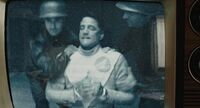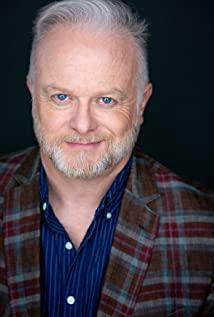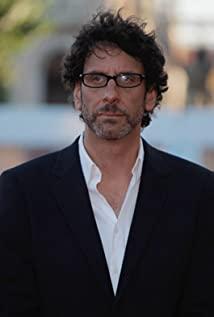The Coen brothers actually had an answer, but they were brilliant at hiding it in the least visible place: Larry's son. The film begins with a line of small print: Receive with simplicity everything that happens to you. This wise note provides an important clue. Then there's an ancient Jewish allegory that seems irrelevant to the plot of the movie. The relationship between this fable and Larry's story is relatively subtle, and roughly expresses the uncertainty of human perception and fate. The fable ends with a blast of rock 'n' roll that seems to come from the depths of the universe, through a long dark tunnel, to Larry's son's headphones. Larry's son was confiscated by an angry teacher because he overheard music on his Walkman in a boring Hebrew class. By the end of the movie, Larry's son is doing well at the bar mitzvah, and he is able to meet Master C and listen to the old Master's teachings, which may be a once-in-a-lifetime opportunity. The old mage returned the Walkman. But before returning, he did not speak any Jewish teachings, but said two words to Larry's son: When the truth is found to be lies, when all the hope within you dies, then what? (What do you do when truth turns into a lie and all hope in you is dashed?) These two lines actually come from the first two lines of rock music played at the beginning of the movie, from the hit song Somebody to by Jefferson Airplane in the 1960s. love. One detail is that the old mage changed joy to hope. The old master even named the main members of the band. Funny maybe, why would a well-respected mage be interested in a rock song? The Coen brothers are implicit in this song the answer the child's father is so desperately asking:
When the truth is found to be lies
And all the joy within you dies
Don't you want somebody to love, don't you.. .
Need somebody to love, wouldn't you...
Love somebody to love, you better...
Find somebody to love
The message of the movie is love. Combining Jewish mysticism and modern physics to explain the uncertainty of life, the Coen brothers gave an answer close to Christian teaching. The exact meaning of love is unknown. Larry was a man who lived in his own world. Apart from class, he actually didn't have much communication with other people. He didn't know that his wife was having an affair until she told him; he also didn't know what the child was thinking.
The Coen brothers did not give the answer to the suffering Larry, but to the audience who did not necessarily suffer. The ordeal didn't end here. At the end of the movie, Larry finally decides to accept a bribe from a Korean student because he is short of money to fight a lawsuit against his brother. Just a second after he revised the scores of the Korean students, the phone rang loudly. The doctor who examined him at the beginning of the movie asked him to go over immediately to discuss the results of the X-ray, which obviously indicated a serious condition. Perhaps the implication here is a will of God. In the Bible, Job, who was tortured for no reason, never gave up his faith in God, and finally obtained God's blessing and ended his life of suffering. Larry is actually a modern-day Job, kind but suffering for no reason. However, he was not guaranteed at night and did not reach the realm of Job, so he would lose something even more terrifying—life. Meanwhile, his son and the rest of his classmates stood on the school playground, facing an oncoming tornado, with their fate uncertain. At this time, it was still the deafening Somebody to love.
View more about A Serious Man reviews











